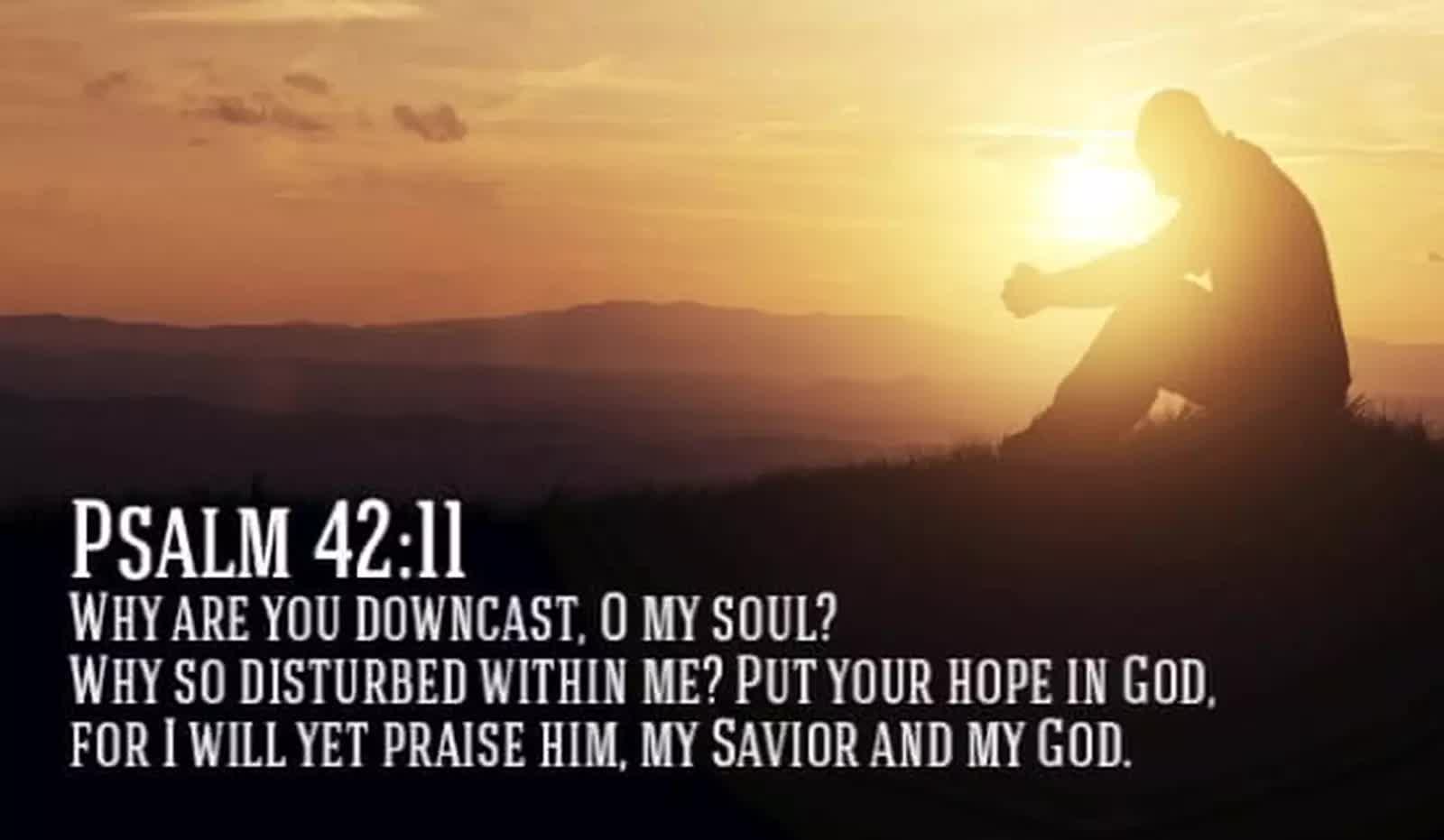What I Wish People with Mental Illness Knew

She understood me. She was the first person who did. The ruminating thoughts, the downward spiral, the world of horrors that was always a mutant breath away—she understood it all. And this woman, my first psychiatrist, prescribed a miracle pill to fix it all. It was 1994 and medicating depression was not common yet. Not like it is today.
The late-night talk show hosts made Prozac jokes routinely. There was still a stigma, so I was selective about who I shared my condition with. But there might be a cure. There was hope! The psychiatrist—I can’t recall her name, there were so many over the years—confirmed that I had a chemical imbalance, and a little pill would solve it. Prozac was supposed to be a life raft in a sea of toxic thoughts.
That doctor’s visit marked a turning point for me, a significant milestone in my 17-year battle with depression.
I’ve learned a lot about mental illness on this journey as someone who suffered from mind-numbing anxiety and depression for nearly two decades. I’ve learned even more as someone who has experienced transformational healing from that despair.
If you or someone you know suffers from mental illness, I want to give you words of hope and words of healing.
This is what I wish people with mental illness knew:
1. Mental illness is not just a physical illness.
Ten years ago, there was virtual medical consensus that bad brain chemistry caused mental illness. Today, a growing contingency of medical professionals believe that a “chemical imbalance” within the brain is not the only cause of mental illness. When it comes to depression, Harvard Health also links faulty mood regulation, genetics, stressful life events, medications, and other medical problems as potential root causes.
Absent from this list is a critically important area that modern medicine fails to consider: our spirits.
Scripture tells us that as human beings, we are made in the image of God (Gen. 1:27). This means that we have a body and a mind, but we also have a spirit. We live in a divine and complex dance between the three parts of who we are, which mirror the three parts of God.
Dear friend, recognize that your struggle is not just a physical one.
My middle name is “Joy,” and I suffered from clinical depression for nearly two decades. That isn’t ironic or coincidental. That is a spiritual battle for my identity and my destiny, which involved my spirit as well as my mind and body. That is a spiritual battle for my soul.
The medical community wanted to treat my body and my mind. They had nothing to offer for my wounded spirit. I needed a greater Physician and some soul surgery to heal that part of me.
The path that brought healing, the path got me off of the medication which no longer worked, that got me out of the psychiatrist’s office, that proved all the doctors wrong when they said I would be this way for the rest of my life, healed more than just my body. It healed my spirit. It healed important relationships. And it healed my heart.
Medicine is a blessing, and I thank God for the aid it gave me. But the modern medical community has done us a disservice by divorcing our bodies and our minds from our spirits. They will treat the first two, but most will not treat the third.
Any remedy that the Lord has for you must encompass all three parts of who you are. It must bring healing to your body, your mind, and your spirit.
2. The diagnosis can help, but the label can harm you.
At first it brought relief—the diagnosis. It explained everything. The pain, the twisted thoughts, the perpetual descent into the abyss.
But over time, the label limited my perspective and my progress. I was constantly defeated by this foe called depression. I was defective. And bitter. I thought that God had made me with an insurmountable obstacle, and things would always be this way. After my hundredth trip to the altar crying out for a miracle that hadn’t come, I shook a Prozac at the heavens and screamed, “This pill is mightier than you are!”
Then the pill stopped working.
Depression had defined me. It was who I was. And I would never change.
Labels do that to a person. They become your identity.
I met a man whose son had a profound diagnosis of autism. The child couldn’t even speak, but the father’s perspective on his son’s illness forever changed my own. He told me, “I never say that my son is autistic. I say that he battles autism, and battles can be won!”
More profound than his son’s illness was this father’s perspective.
His words became my battle cry, my fight song. They sang to the deepest part of my soul.
Let them sing to yours.
We cannot allow our circumstances to define who we are—not if we want to overcome them.
It will take every ounce of courage that you can muster, but I must challenge you, precious friend—take off that label. It isn’t helping you. That label is not your friend.
Get on your knees and declare these words to the heavens:
“I am NOT mentally ill. I battle mental illness, and battles can be won!”
3. You want a miracle, but you may need healing.
Everyone wants a miracle. You want the battle to be over now. You want the pain to end. Miracles are instantaneous. You are in the thick of the fight, and suddenly, it’s over. There is blessed relief.
That is what you want more than anything, so surely, that is what you need.
But maybe it isn’t.
Healing doesn’t happen like miracles. It is long and drawn out. It lasts much longer and goes much deeper than you want.
But in the end, healing can be far more satisfying and effective.
God will use healing to dig up every last vestige of toxic waste in your soul, everything that harms you, everything that you buried and tried to forget, everything that stands in the way of His purpose for your life and His plan.
More than anything, I wanted a miracle. But I now realize that a miraculous transformation of challenging brain chemistry would have left critical areas of my soul broken. That answer was good enough for me—but it wasn’t good enough for God. He wasn’t satisfied until my broken spirit was whole again.
He won’t be satisfied until your broken spirit is whole again, too. He wouldn’t be a loving Father if He left you half-healed and half-whole.
If God determines that you need healing and not a miracle, trust that His plan is best.
4. God has a plan for your deliverance.
You can’t get far into the Psalms without realizing that King David is a kindred spirit to those who battle mental illness. He expresses despair of the soul with the best of us.
Consider this lament from Psalm 13:1-2
How long, Lord? Will you forget me forever?
How long will you hide your face from me?
How long must I wrestle with my thoughts
and day after day have sorrow in my heart?
And these verses from the sons of Korah in Psalm 42 are eerily familiar to those who battle this enemy:
My tears have been my food day and night,
while they say to me all the day long, “Where is your God?”
Why are you cast down, O my soul,
And why are you in turmoil within me? (Psalm 42:3, 5)
Scripture speaks to the deepest part of our struggle with mental illness. It identifies with our agony and our grief. It puts words to the anguish and pain.

But Scripture doesn’t stop there, and neither should we.
God’s word offers us hope!
Psalm 40:1-3 says,
“I waited patiently for the Lord;
He turned to me and heard my cry.
He lifted me out of the slimy pit,
Out of the mud and mire,
and He set my feet on a rock
and gave me a firm place to stand.
He put a new song in my mouth,
A hymn of praise to our God.
Many will see and fear
And put their trust in the Lord.”
Know this, friend, God is with you. He is for you. And He has a plan to deliver you, to put a firm foundation under your feet and a song of praise in your mouth.
5. Cooperate with God.
My journey to healing began with a simple prayer, far too simple to accomplish all that it did. God does mighty things with a little faith. I got on my knees and prayed these words,
“Lord, I will do whatever it takes to be healed.”
Those are dangerous words when you really mean them. And for the very first time, I did. Before that prayer, I had insisted that God heal me with the remedies I considered acceptable. But with that prayer, I agreed to do whatever God considered necessary for my healing.
I had to cooperate with God for my deliverance, and so will you.
He may lead you to a new doctor or counselor, pastor, or friend. He may prompt you to have healing conversations with people you would rather not engage. He may tell you to break off relationships that you want to continue. He may give you a new health protocol or routine or supplement or medication. God knows what your deliverance takes, and He will guide you on the path to receive it.
His prescription for you is tailor-made to heal the root causes of your illness, to heal your body, mind, and spirit, and no one else’s.
But know this—He has a plan.
Psalm 34:18 says, “The LORD is close to the brokenhearted and saves those who are crushed in spirit. The righteous person may have many troubles, but the LORD delivers him from them all.”
God doesn’t save us from some troubles. He saves us from all troubles.
But—you must cooperate with Him.
Because only His plan will deliver you. He knows the root cause of what ails you. Listen for His still, small voice. He will guide you if you are faithful to listen and obey.
A prayer for those who struggle with mental illness:
Father, I will do whatever it takes to be healed. I believe that you have a plan to deliver me. I trust that You will lead the way. I will believe You, and I will obey You.
Then listen for His voice. And obey.
If you suffer from mental illness:
- Tell God that you will do whatever it takes to be healed.
- Trust that God has a plan to deliver you.
- Believe that He will reveal that plan.
- Commit to follow His prescription and His word.
- Obey His still small voice.
Dear friend, partner with God—He will deliver you from the pit, put you on a firm foundation, and give you a new song.
Some final notes:
Get Out of That Pit by Beth Moore was a pivotal resource in my journey to be healed from depression. I still have challenging brain chemistry that results in ruminating thoughts, but the cesspool of toxic waste in my soul that churned in my brain day and night is gone. And I have learned techniques to manage my thought life.
If this article blessed you, please see the companion piece “What I Wish People Knew About Mental Illness” to learn how to support a friend or loved one with mental illness.
Photo Credit: © Unsplash/Kilarov Zaneit
Originally published May 12, 2020.





